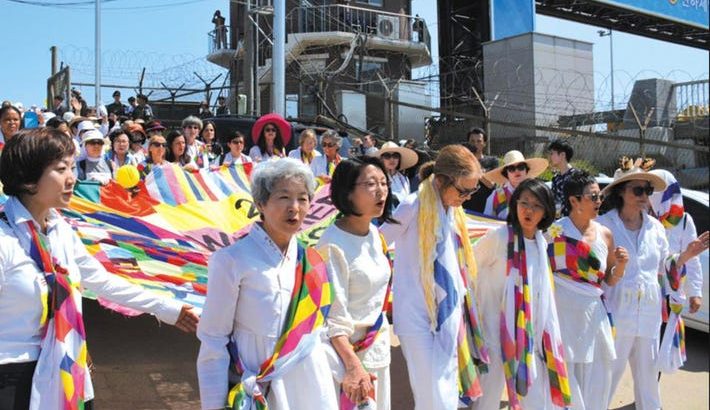
Bidmead Awarded Grant to Support Motherhood to motherhoods Conference in April
March 6, 2023
The Korea Foundation recently awarded Dr. Julye Bidmead (Religious Studies) a $10,000 grant to support a screening and panel discussion of the Korean documentary Coming to You (2021) on Sunday, April 30, 2023, as the highlight and culminating event of the three-day Motherhood to motherhoods: Ideologies of ‘The Feminine’ conference.
Coming to You follows two mothers, Nabi and Vivian, as they journey with their queer and trans children’s identity, eventually becoming active members of “Pinks: Solidarity for Sexually Minor Cultures & Human Rights,” the Korean activist group for parents of sexual minority children. Nabi, Vivian, and Gyuri Byun, the film’s director, will discuss the documentary and the journey to accepting the coming out of their queer and transgender children, Hangyelo and Yejoon. Byun is an activist/director at PINKS, creating films based on feminist sensibility to seek solidarity and create dialogues. She hopes to continue making films in the field as part of a greater community of activists and filmmakers.
The film is especially relevant to the Motherhood conference as it focuses on two mothers who, despite their struggle to come to terms with their children’s coming out, transform themselves into strong advocates and activists of LGBTQ+ rights in Korea. Bringing the filmmaker and mothers from South Korea to the conference provides a cultural forum for empathy and mutual understanding of the shared challenges that everyday mothers with socially marginalized children must face. These mothers have transformed themselves to become activists in a more conservative society regarding sexual minorities and may inspire the U.S. audience to such activism.
This screening will bring together all conference participants to understand the status of sexual minorities and motherhood in a global, transnational, and cross-cultural context. It will also bring attention to two aspects of the Korean culture that have received little coverage in the U.S.: LGBTQ+ activism and the role of independent documentary filmmaking in Korea. The film embodies the central concept of the Motherhood conference and will contribute to establishing a culture of diversity and inclusion. Further, providing a space for community interactions, the whole conference explores the socio-ideological construction of both singular and plural motherhoods as evolving beyond a function of biology to a way of being in the world. Discussions and workshops examining how motherhoods are represented in art, literature, film, and social institutions encompass issues of caregivers’ labor and health and gender identities.

